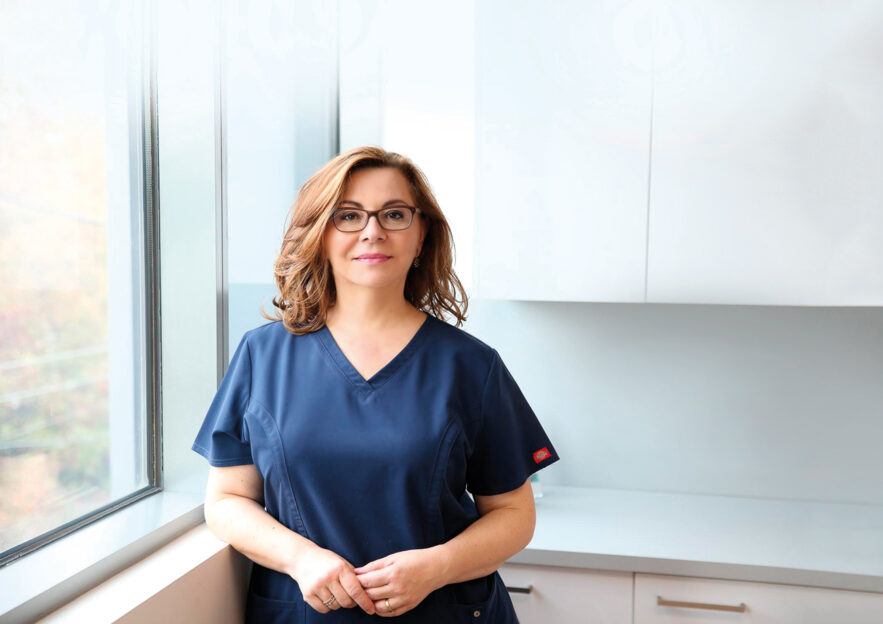Did you know 50% of women will experience urinary incontinence? Or that other vaginal conditions may arise after childbirth and menopause?
This isn’t an easy subject to talk about and many of us suffer in silence. But the truth is, whether it be from multiple births, menopause or simply growing older, pelvic floor issues are real.
What we’re referring to here are conditions such as stress urinary incontinence (SUI), vaginal atrophy, vaginal prolapse, and vaginal laxity. Things that affect our quality of life, our sex lives and… well… our confidence.
Indeed, none of us wants to experience any of them, but many of us do. Fortunately, there have been advances in this area of health. And the good news is transvaginal medical laser treatments are now available including:
- Fotona IncontiLase® for stress – urinary incontinence (SUI)
- Fotona RenovaLase® – for vaginal dryness and atrophy post menopause
- Fotona InitmaLase® – for vaginal laxity
Introduced to New Zealand by Dr Mirjana Janjic, transvaginal medical laser treatments are set to change women’s lives. While living in Melbourne in 2014, Dr Janjic had the rare opportunity to travel to Europe to train in minimally invasive transvaginal laser procedures.
“I was trained by the two pioneers who are wonderful gynaecologists, Dr Sabina Sencar and Dr Urska Bizjak Ogrinc,” she says.
On her return, she and Dr Else de Wit made the highly specialised treatments known in Australia. “We were the first doctors to use the transvaginal laser to treat pelvic floor conditions there.”
Transvaginal laser differs from aesthetic laser procedures because it uses a special non-ablative mode that has a gentle photo-thermal effect on tissue. And there’s solid evidence from clinical trials to back its safety and efficacy.
Dr Janjic says it’s fantastic for rebuilding vaginal tissues after damage due to:
- multiple births
- menopause
- general ageing
“We lose collagen and pelvic floor support weakens with age. The laser stimulates collagen which thickens and tightens the vaginal tissues and endopelvic fascia improving the entire area.”
In addition, laser can help you find sexual pleasure again.
“Some women experience lack of sexual stimulation after childbirth. This is due to laxity from the stretching of the vaginal wall. Sometimes things don’t come back to the shape they were. It becomes not so much about lubrication but feeling tighter.”
Laser also aids post-menopausal genital urinary syndrome. “The other issues become worse in menopause because everything in the area is thinner, and we lose support around the urethra. The laser creates a healthier environment in the vaginal tissue with hydration and increased blood circulation. I call it ‘a benefit of light’.”
It’s important to perform pelvic floor exercises also. “Laser can’t replace exercises because you need strong muscles and healthy tissues. Women report 65-75% improvement in their symptoms after they attend pelvic floor physio training. But it takes several weeks to see results and needs to be done regularly, preferably by a trained physiotherapist.”
Weight management, drinking enough (not excessively, see below), and moderating any heavy lifting are key too. “I see women in their 30s with SUI from excessive physical exercise, mostly from weightlifting. A lot of women aren’t aware of that possibility.”
Treatment
If treatment is right for you, it takes 45 minutes and three are required, one month apart. Vaginal laser is non-ablative and not uncomfortable as the vaginal moisture dampens the laser’s heat. Post-treatment the body goes into repair mode. “It’s time to go home and lie down with your feet up because the body’s likely to react in some way. Some women may have increased discharge, others may feel a little achiness like period pain, but we rarely see any complications.”
Results
Transvaginal medical laser results are gradual and impermanent. Therefore, maintenance is required. “Results begin after the second treatment. I call it the gift that keeps on giving because as a person who has received the treatment myself, I was better at three months and fantastic at six months,” says Dr Janjic.
“The older we are the longer it takes for our collagen to be stimulated – maximum effects usually take three to six months. “There are variables because everyone produces collagen differently.
“Most women come back at 9-12 months. They’re guided by noticing a change when they exercise or walk the dog. That’s the sign it’s time for maintenance.”
Drinks for a Healthy Bladder
Non-Irritating:
- Water
- Herbal tea
- Red bush tea
- Decaf tea and coffee
- Diluted juice
- Non-acidic fresh drinks
Irritating:
- Caffeinated tea and coffee
- Green tea
- Hot chocolate
- Fizzy drinks especially cola
- Caffeinated energy drinks
One Health, Level 2/122, Remuera Road
027 214 1463, info@drmj.co.nz
drmj.co.nz






